|
Receptivity to others is an important part of the work of evangelization. When we think about those in faith who we can look to for guidance in receptivity, we often go to Mary, and rightly so. While Our Blessed Mother is the perfect model of receptivity through her being the one who received the Incarnation, it is in examining the life of an unlikely 19th century saint that we see how we can live out Mary’s model of receptivity in a modern, secular world in order to bring others to encounter with Christ. St. John Bosco was an Italian priest who lived in the 19th century, and is known for the work he did with troubled youth in the city of Turin where he was assigned as a parish priest. During his time, it was often frowned upon for priests to educate, accompany, house, and provide for the poor youth in the ways that St. John Bosco did, but this did not stop him from his work. Through his lifetime St. John Bosco helped so many young boys in difficult situations to encounter Christ and become faithful Christians that other priests in Turin accused him of bribing the boys and “stealing” them from the other parishes. But it was not St. John Bosco’s money or ulterior motives that brought these boys to the Church, it was his ability to receive and love them fully where they were. When he met boys living on the streets, he did not immediately try to get them into the church for Mass, but rather grew to know and love them as children of the Father, becoming a trusted friend who could share the love of Jesus Christ with them. When he visited the boys in prison, he did not condemn or accuse them, but would listen lovingly to whatever they had to say, simply being with them so that they would not feel forgotten or unloved. St. John Bosco understood that the point of his evangelization was not to get as many people in pews as possible, but to bring as many people as possible to know their Savior– and to do that, a person must first know that they have an identity, a community, and a purpose. When St. John Bosco received the boys he ministered to at whatever level of faith or morality they were at, he let them know, often without words, that they had the identity of being sons of the Father, had community in Holy Mother Church, and had a purpose of getting to eternal life in the Holy Trinity. We learn from St. John Bosco how crucial of a step receiving the other is when evangelizing. It can be tempting to jump straight into a script or already be thinking about ways to invite the person you’re encountering into the faith before you’ve even started talking to them. However, the example of St. John Bosco challenges us to instead receive the person first: to listen to them, get to know them, and love them fully where they are. It is only from this place of trust in receptivity, that we can truly say to the other: “I love you, but there’s someone who loves you infinitely more, and I want to introduce you to Him.” **This photo is from https://catholiclife.diolc.org/2019/07/25/st-john-bosco-a-role-model-of-accompaniment/**
0 Comments
Today we celebrate the heavenly birthday of one of my dearest friends, St. Francis de Sales. It is often said that the saints choose you, and I have certainly found that to be the case with Francis. Since I first “met” him while reading a book about the saints, he has continued to captivate and encourage me.
Francis was born in France in 1567 to an aristocratic family. He was well educated, and while his father hoped this would lead Francis to a career in law, his studies ended up leading him to the priesthood. He was a sought-after spiritual director (perhaps his most well-known directee was St. Jane Frances de Chantal with whom he started the Visitation Sisters). Francis was also devoted to evangelization and catechesis through preaching and writing, and had a love of the poor which was manifested through works of charity and his own detachment from material things. He was canonized a saint in 1665 and named a Doctor of the Church in 1877. One of the things that makes a saint is that their life and teaching transcend time and remain relevant over the centuries. This is certainly true of St. Francis de Sales. While Vatican II affirmed the universal call to holiness in the 1960s, Francis ardently promoted this teaching three centuries prior. When St. Jane Frances de Chantal wanted to leave her duties as a mother for the “higher” calling of entering religious life, Francis encouraged her to have patience and fully embrace her current vocation as a mother. Rather than imagining that holiness is better achieved in religious life, he reminded her that faithfulness to the real life unfolding before her was the place for her to become holy. As he said to another directee in An Introduction to the Devout Life, “work in quiet cooperation with him, and then rest satisfied that if you have trusted entirely to him you will always obtain such a measure of success as is most profitable for you, whether it seems so or not to your own individual judgment.” When Francis was named a Doctor of the Church, it was under the title Doctor of Divine Love. Francis’ personal devotion to the Lord and life of ministry flowed from his own love for God and awareness of God’s love. When Francis’ devoted friend, Bishop Jean-Pierre Camus, questioned him about how to grow in love of God and neighbor, Francis replied simply, “You learn to speak by speaking, to study by studying, to run by running, to work by working. Just so you learn to love God and many by loving. If you really want to love God, go on and love Him more and more.” This simple approach to God is a hallmark of Francis’ spirituality. Without pretending that such growth in holiness would be quick or easy, he offered straightforward guidance that people in any vocation or stage of life could follow. While we may not be able to love God perfectly and completely today, we can certainly strive for that and lay our foundation today. Francis shows us that God’s love toward us and our love toward God are reciprocal, growing in relation to one another. One of my favorite quotes from St. Francis de Sales is, “Have patience with all things, but chiefly have patience with yourself.” Francis offers the guidance of a gentle, compassionate father. He knew firsthand the temptation towards despair at our lowliness before God, but he also knew personally that God offers us the grace we need in our pilgrimage towards Him. God knows each of us intimately–our strengths and our struggles–and looks into our hearts. Rather than being overwhelmed by our shortcomings, spiritual and otherwise, Francis encourages us to extend God’s own gentleness and patience to ourselves. As Francis says elsewhere, God “delights to show forth his power in our weakness, his mercy in our misery.” St. Francis de Sales, Doctor of Divine Love, pray for us! Further reading: Pope Francis. (2022). Totum Amoris Est: On the fourth centenary of the death of Saint Francis de Sales. Campbell, Colleen Carroll. (2020). The Heart of Perfection: How the Saints Taught Me to Trade My Dream of Perfect for God's. Howard Books. **This image is from https://www.catholic.org/saints/saint.php?saint_id=51** “Seek God and you will find God. Seek God in all things and you will find God in all things. Seek God always and you will find God always.” – St. Vincent Pallotti
God, the Infinite Love, is seeking us. We are not simply seeking God. God is seeking us. Our eyes, ears, minds, and hearts need to be attuned to see, hear, know, and feel the presence of God. St. Vincent Pallotti, whose feast day is today, understood well in his own life how to attune himself in this way. He knew that we do not do this on our own. The grace of God which we cooperate with gives us that ability. It is God seeking us! Look for God, listen for God, choose to open your mind and heart to God in all moments and in all places. St. Vincent Pallotti assisted all in seeking God and knew that they could not only seek, but find God. He believed that in our seeking and finding, Christ transforms our lives to live more fully for him. Christ sends us to others as his apostles, being the loving and compassionate face of God to those we encounter. Pallotti was this face, aligning his life with the poor, in whatever way that poverty was, physical or spiritual. He revived faith and rekindled charity and wanted other people of faith to do the same. Pallotti knew that he and we are not living our own mission, we are living the mission that Christ has given us. Ours is the mission to bring all to Christ in and through his Church. May the Charity of Christ urge us on! St. Vincent Pallotti, pray for us! In God, the Infinite Love, Fr. Frank "Commitment to ecumenism responds to the prayer of the Lord Jesus that 'they may all be one' (Jn 17:21). The credibility of the Christian message would be much greater if Christians could overcome their divisions and the Church could realize 'the fullness of catholicity proper to her in those of her children who, though joined to her by baptism, are yet separated from full communion with her.' We must never forget that we are pilgrims journeying alongside one another. This means that we must have sincere trust in our fellow pilgrims, putting aside all suspicion or mistrust, and turn our gaze to what we are all seeking: the radiant peace of God’s face” (Evangelii Gaudium, n. 244). Over the nine years that I was at St. Jude Shrine in Baltimore, Maryland, I had the opportunity to participate in and then to host an annual prayer service for Christian Unity. It became a very popular celebration and leaders from various Christian communities participated, including the Archbishop of Baltimore. To me, though, the most important people who participated were the people who went week to week to their faith communities in various parts of Baltimore, but never had the opportunity to pray together with Christians from other communities. Prayer is powerful and to underestimate its power to unite us leaves us lacking in the virtue of hope. Such hope is not naïve, but is based on firm trust in the work of the Holy Spirit. The annual Week of Prayer for Christian Unity will begin on Saturday, January 18th and conclude on the Feast of the Conversion of St. Paul on January 25th. Year after year, Christians are invited to pray that “they may be one.” St. Vincent Pallotti, patron of the Catholic Apostolate Center and founder of the Union of Catholic Apostolate, worked diligently for unity in the Church, using the liturgical Octave of the Epiphany in Rome as a means to unite in prayer members of the Eastern and Western traditions of the Catholic community who were rather disconnected from one another. This celebration was held in the city of Rome from 1836 until 1968. His feast day, on January 22nd, is in the middle of the Week of Prayer for Christian Unity. Collaboration of all Christians can lead us toward Pallotti’s vision, hope, and prayer that one day we may be “one fold, under one Shepherd, Jesus Christ” (Cf., Jn 10:16) Since our mission as the Catholic Apostolate Center is derived from the charism of St. Vincent Pallotti, who fervently prayed for such a day, we invite you to pray not only individually, but draw other Christians together in prayer. Prayer, though, is not the only thing that we can do. We can learn more about what the Roman Catholic Church teaches about the needed work for building unity among Christians. We invite you to explore the many resources that we have on our new Christian Unity page. May we also take up the call of the Catholic Church spanning from the time of the Second Vatican Council to the appeal of Pope Francis today: "The search for unity among Christians is an urgent task... We are well aware that unity is primarily a gift from God for which we must pray without ceasing, but we all have the task of preparing the conditions, cultivating the ground of our hearts, so that this great grace may be received" (Address to the Delegation of the Ecumenical Patriarchate of Constantinople, June 28, 2013). Please visit our Christian Unity resources by clicking here. **This blog was originally published on January 19, 2021.** “Jesus allows himself to be found by those who seek him, but to find him we need to get up and go.” -Pope Francis I remember getting up in the middle of the night years ago to try and glimpse a rare, hybrid, solar eclipse. My husband and I camped out at the Lincoln Memorial in the wee hours of the night with blankets and hot chocolate to wait for a rising sun that would be covered by the moon. Rich pink and orange hues danced across the sky, basking the surrounding monuments. Though there were clouds that day, we knew something mysterious and magical was happening above us. We were willing to sacrifice some sleep and wait in the cold just to catch a glimpse of that star. What did the magi see when they looked up in the sky over two thousand years ago? It was enough not only to make them camp out in wonder, but to set out in haste. Their journey required provisions, logistics, time, and great effort. But something in the sky beckoned them. I imagine it was similar to what Peter, Andrew, James and John saw in the face of Christ calling them on the beach – something so extraordinary and captivating that it called them out of their day-to-day routines to begin a new journey. Both the journey of the magi and that of the first apostles had the same end: Jesus Christ. These journeys show that an encounter with Jesus is life-changing. It sets us in motion: the journey of the magi, the life of discipleship and evangelization. This past Sunday, the Christmas season continued with the celebration of the Feast of the Epiphany. The Gospel reading recounted the journey and visitation of the magi to the Christ-child. As the Catechism of the Catholic Church states, “The Epiphany is the manifestation of Jesus as Messiah of Israel, Son of God and Savior of the world. the great feast of Epiphany celebrates the adoration of Jesus by the wise men (magi) from the East, together with his baptism in the Jordan and the wedding feast at Cana in Galilee.” The birth of Christ is the first outward manifestation of the Messiah. Jesus, whose name means “God saves,” is the revelation of God’s plan of redemption. After years of prophecy and expectation, longing and promise, God comes in the midst of his people in the most intimate way possible: as one of them. This Incarnation is awe-inspiring. So awe-inspiring, in fact, that it even draws strangers. The Messiah foretold was long-awaited by the Chosen People of God—the Israelites. And yet, how many do we see at the birth of our Lord? The Visitation of the Magi foretells the inclusion of the entire world in God’s plan of salvation. He has come not only to redeem Jews, but Gentiles—peoples of every land and nation. As Paul wrote in Sunday’s second reading, “the Gentiles are coheirs, members of the same body, and copartners in the promise in Christ Jesus through the gospel.” What can we learn from the magi? In his homily on the Feast of the Epiphany last year, Pope Francis boiled it down to 3 things:
Let us imitate the magi in our lives of discipleship. They were not complacent, but so observant that they were able to recognize God’s sign: the star. “The Magi were not content with just getting by, with keeping afloat,” Pope Francis said last year. “They understood that to truly live, we need a lofty goal and we need to keep looking up.” They were vigilant, ready to go when the time came. And their hearts were receptive, disposed to the signs of the times. From there, they set out on a journey which would lead them to Christ himself. This journey required effort, planning, and sacrifice. And finally, they came bearing costly gifts: gold, frankincense, and myrrh. They met the generosity of God by reciprocating generosity. Pope Francis continued, “To give freely, for the Lord’s sake, without expecting anything in return: this is the sure sign that we have found Jesus.” As we reflect on the significance of the Feast of the Epiphany, let us look to the example of the magi in our lives of discipleship. Let us look up beyond the distractions of the world in order to see God’s star. Let us take the risk of setting out on our journey closer to Christ with joy. And let us give generously to a world which needs the generous love and mercy of the Christ-child. Question for Reflection: What are some things in our life that might distract us from seeing God in the everyday? **This blog was originally published on January 8, 2019** **This photo is from: https://www.crossroadsinitiative.com/media/articles/epiphany-of-the-heart/** “When Jesus touches a young person’s heart, he or she becomes capable of truly great things.” – Pope Francis The quote above from Pope Francis’s introductory remarks to the pilgrims of World Youth Day 2016 in Krakow, Poland, spoke to over 2 million young adults traveling around the globe to worship together. Pope Francis’ words were heard by people already impacted by the message of Christ, many of whom, I would guess were informed of and formed by the love of God thanks to their Catholic educations. Today we celebrate in the United States the feast of St. John Neumann, Bishop of Philadelphia and founder of the first diocesan school system in the United States. Per the request of many families in his diocese, Bishop Neumann established a diocesan school system so that the children of the diocese could receive Catholic instruction and grow in their faith in a classroom setting. When the school system was established, the diocese of Philadelphia was strapped for resources, so Bishop Neumann invited many different religious communities to the fledgling schools to tend to the rapidly growing immigrant population in the city. His efforts both established the school system and increased the education of the city’s Catholic youth by more than twenty-fold. His diocesan system later served as the model for parochial Catholic education for much of the United States. St. John Neumann understood in the 19th Century - much like Pope Francis does now - that learning about the love of Christ through educational experiences can be an important part of our evangelical mission in this world. If we are all called to share in the evangelizing mission of the Gospel, then we must consider in what ways those gifts and talents can be utilized for that mission. For St. John Neumann, Catholic education provided the youth a designated place to come and learn about the Lord and how to live as a Catholic alongside of their other studies. For many youth, their formal catechesis ends with sacramental preparation. Families often don’t understand the importance of continual catechesis throughout a person’s life. So, what can we do to help the youth and young adults in our parishes and communities become more engaged in the faith outside of Catholic schools? How can we support education in non-traditional ways? The answer is particular to your individual situation and universal to the faith we all believe in. Pope Francis has some advice and good examples of experiences that I cannot better summarize myself: “Knowing your enthusiasm for mission, I repeat: mercy always has a youthful face! Because a merciful heart is motivated to move beyond its comfort zone. A merciful heart can go out and meet others; it is ready to embrace everyone. A merciful heart can be a place of refuge for those who are without a home or have lost their home; it can build a home and a family for those forced to emigrate; it knows the meaning of tenderness and compassion. A merciful heart can share its bread with the hungry and welcome refugees and migrants. To say the word ‘mercy’ along with you is to speak of opportunity, future, commitment, trust, openness, hospitality, compassion, and dreams.” Is your parish environment one of mercy? Does it foster openness and compassion? Is it willing to embrace people where they are with mercy and hospitality? Is your parish one that is moving outside of its parish borders and going to where it’s a bit uncomfortable and meeting people where they are both physically and spiritually? This is part of the continuing education that we as Catholics must undertake if we are to carry the mission of God to the world. We must constantly learn and relearn the message of Christ as espoused in the Gospels and find ways to practice it in our daily lives. We must learn to love and serve God and to love and serve our neighbor, not just from behind a desk, but in every step we take. **This blog was originally published on January 5, 2017.**
|
Details
Archives
July 2024
Categories
All
|
About |
Media |
© COPYRIGHT 2024 | ALL RIGHTS RESERVED

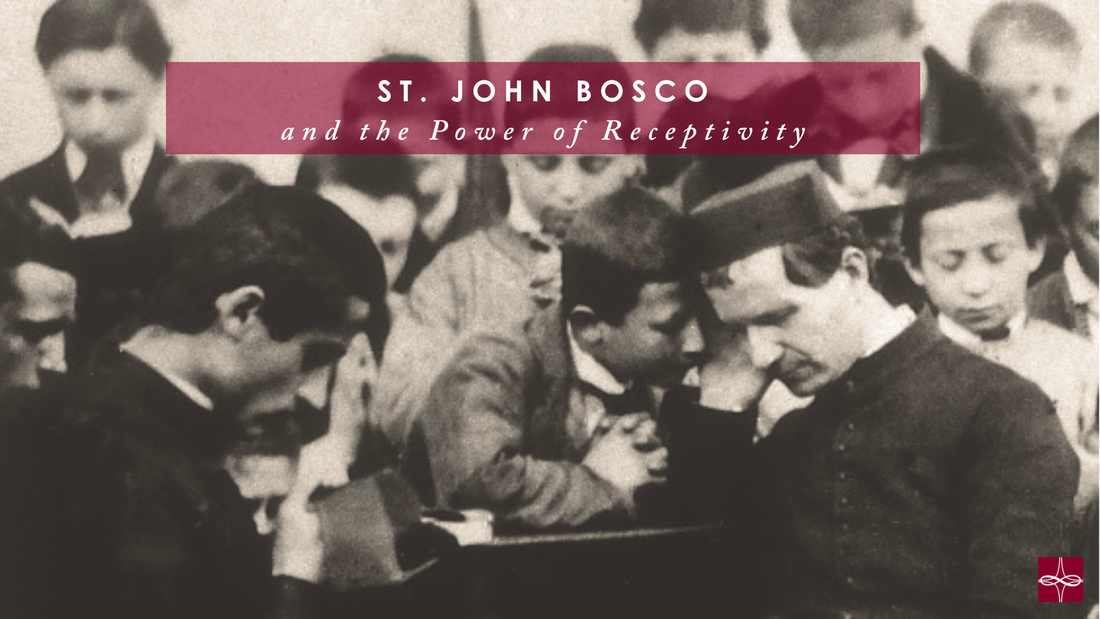

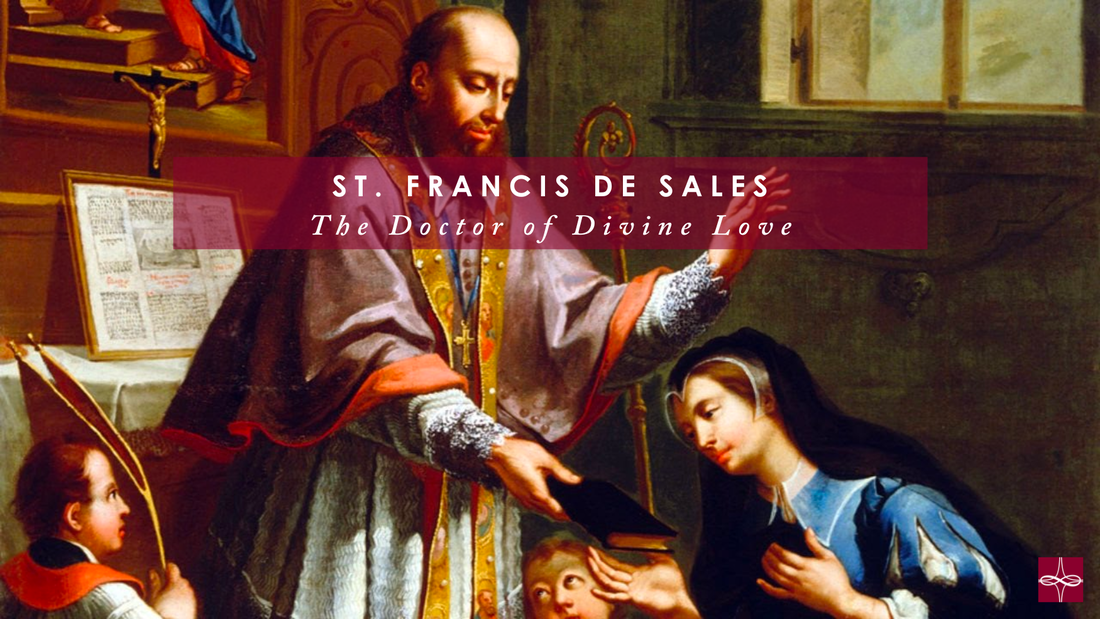

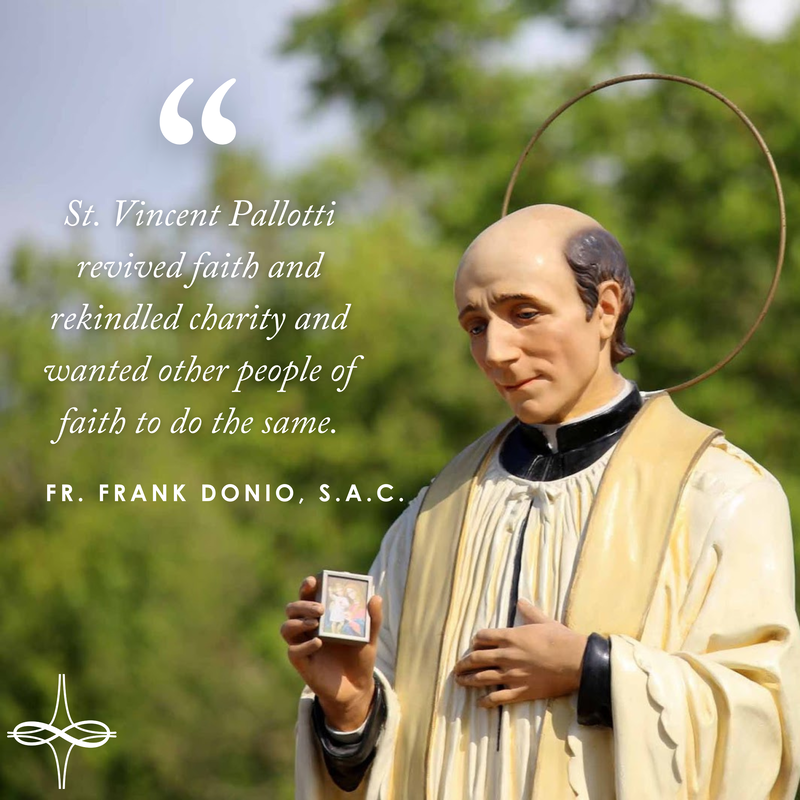
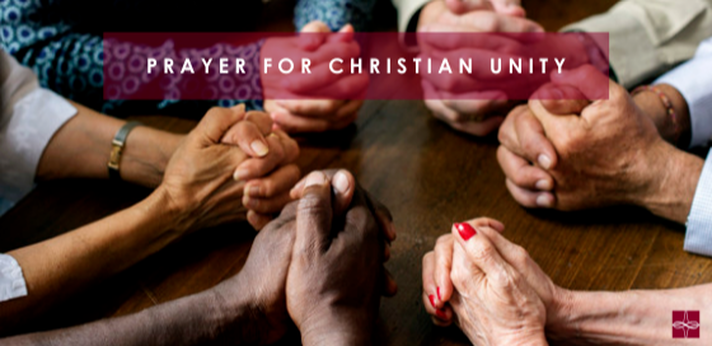
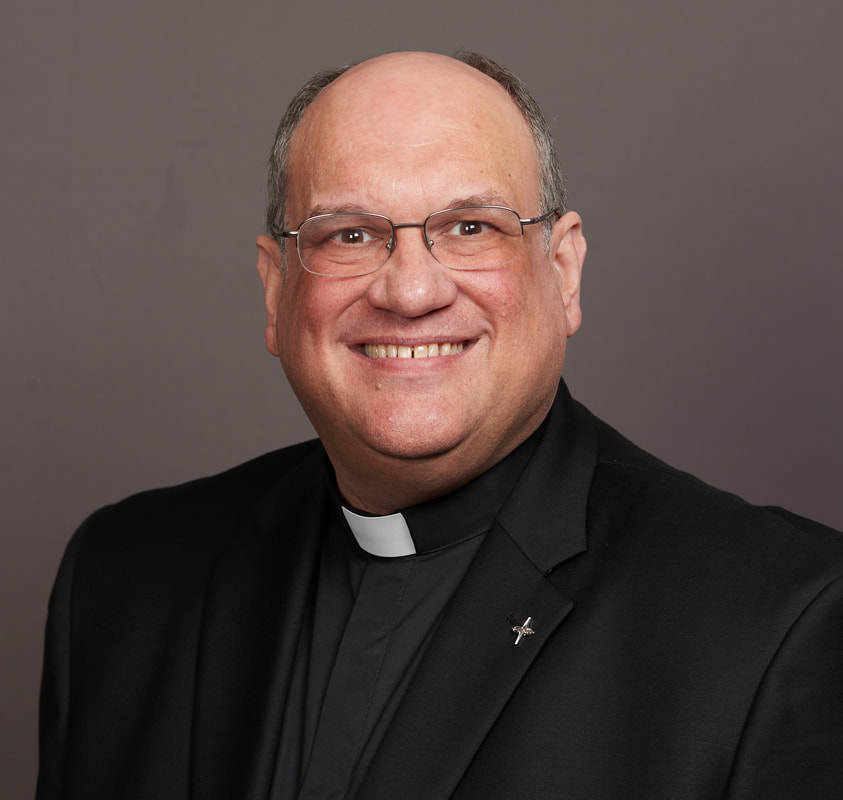
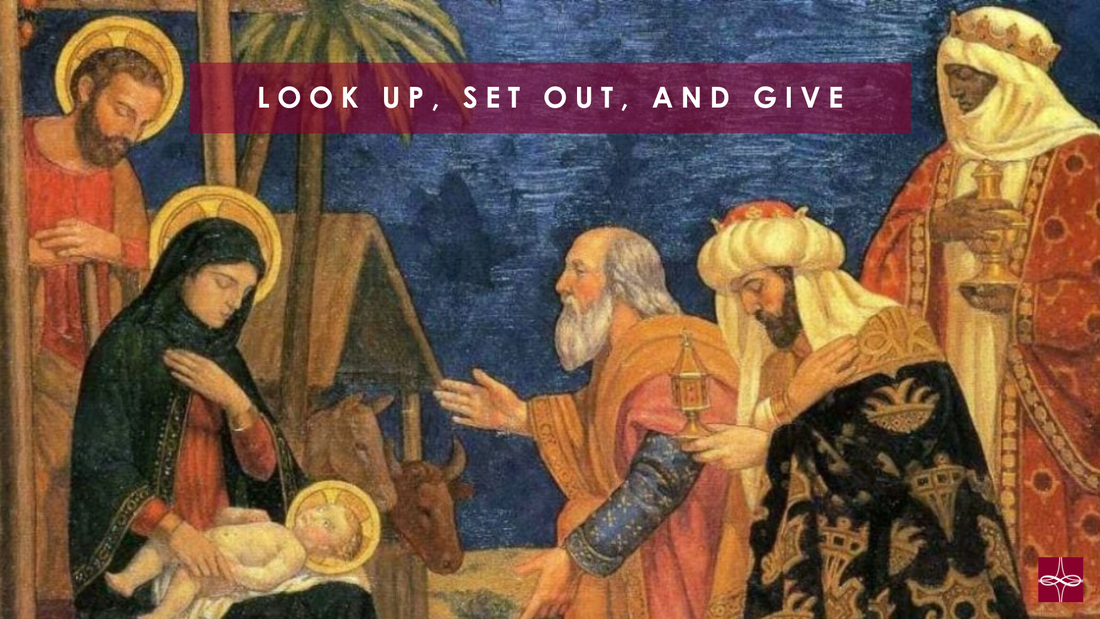



 RSS Feed
RSS Feed